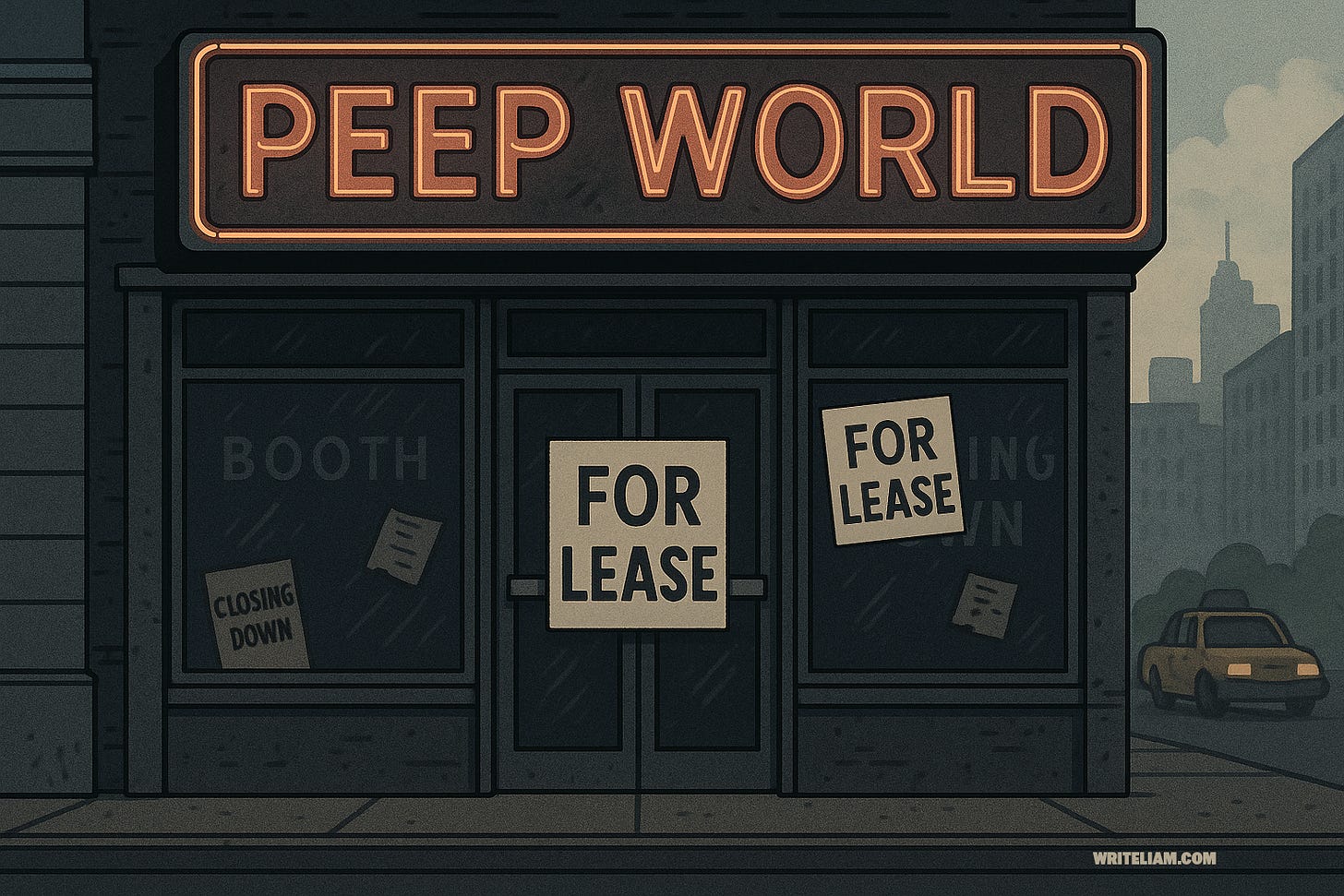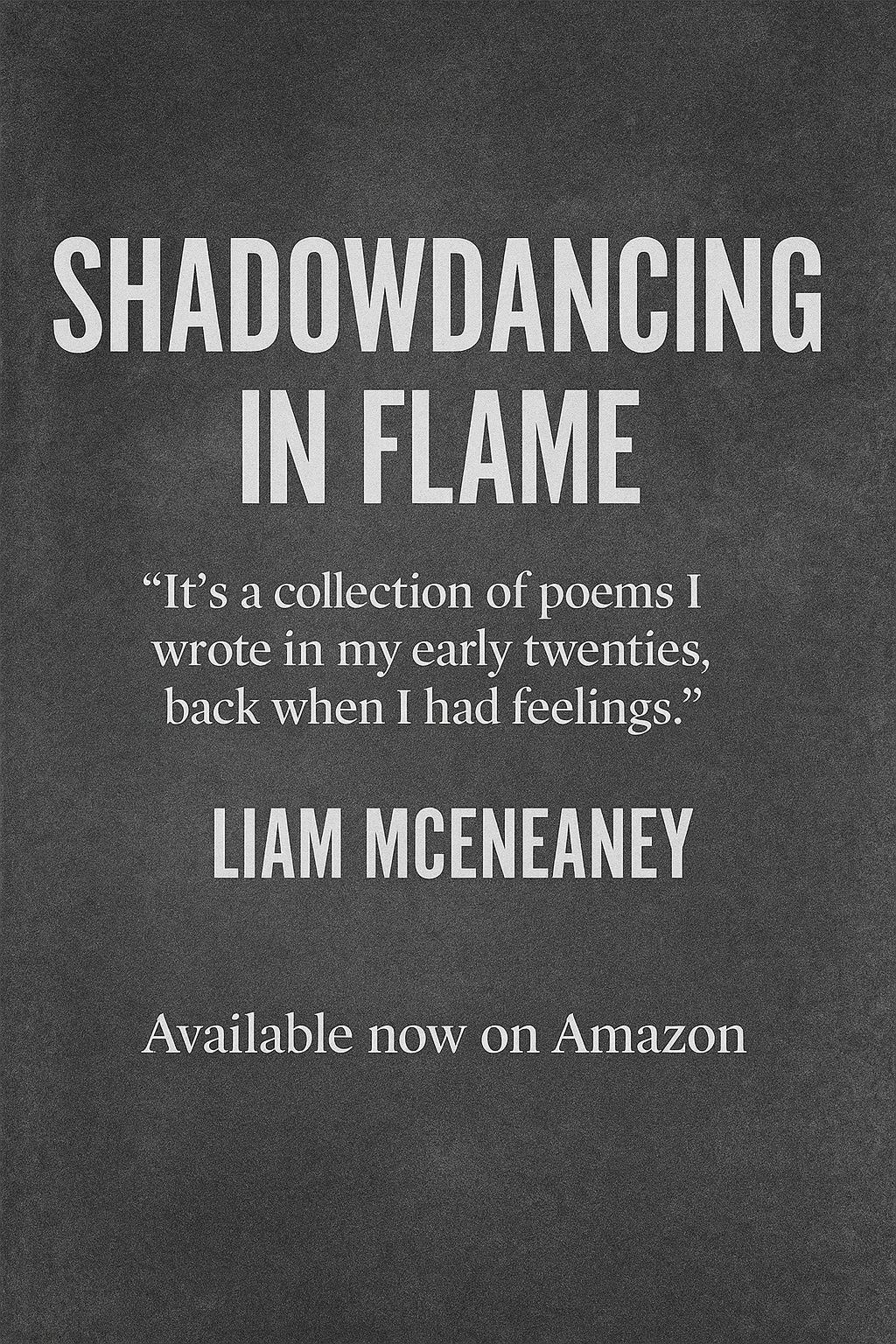B-Side: The Last Time I Visited New York...
...was the last time I visited New York.
I’m working on an essay, a piece of literary memoir about a remarkable experience I had in high school, and about growing up in Queens, and about how when you’re young in New York City the city will change alongside you. I needed a paragraph about not missing New York anymore. In my own logorrheic way, I ended up writing an entirely separate essay fragment on the subject.
There are sure to be grammatical errors. Spelling errors. Sentence fragments. But since I don’t want to be the millionth person to write a “Goodbye to New York” essay, and since I have no other outlet for this, enjoy my unedited thoughts on a city I used to know so well:
The last time I visited New York City I realized it really might be the last time I visited New York City, at least for a long while. I’d been living in Los Angeles for over six years full time by then, and this visit drove home a feeling I couldn’t shake: I don’t miss New York City. I just miss being young there.
My mother and my sister and her family were moving out, and with multiple close family members passed on and my cousins settled in to their lives overseas, I knew I wouldn’t have too many reasons to keep flying back from my home in Los Angeles.
Or to put it more bluntly, I wouldn’t have a free place to stay anymore.
The city where I spent my hungry young years running wild, making mistakes, falling in love, feeling free from the bonds of my childhood, it was no longer that for me. And that’s the way it should be. New York City isn’t a sacred site, not to hang on to, it’s not a small hometown where nothing changes. It moves at a rodeo’s pace, all lights and sound and furious action. And it’s a place where every generation of young people move to to reinvent themselves alongside the city around them.
And so I walked north on one last tour of all my old haunts, starting in the Lower East Side where all the black box theaters where I’d started standup were gone. The black out bars where I’d started my drinking career were also gone. The nieghborhood bar named after a Tarantino character (“Nice Guy Eddie’s”), Barakat the city’s second-best falafel and gyro place gone.
When you die, they say, scenes from your life flash before your eyes, and the same thing happens when you walk through a life locus for the last time. "Here's the first floor apartment window of that girl, where I stood outside and forced her to admit she was currently in the process of cheating on me." And: "Here's the building doorway where I had one of the weirdest afternoons of my life assisting in a witchcraft video that never surfaced."
It isn't me that died. But it's also a piece of me that died a long time ago, when I was so busy working that I didn't have time to mourn it. I might move back to New York City some day. But my New York City is gone.
Moving northwest along Broadway through Herald Square, within sight of the Empire State Building—home to one of my more remarkable temp jobs, for a lawyer in a shared office space where all the other lawyers were in the process of suing each other—and towards the Public Library.
I took a detour down West 32nd Street, formerly home to a call center where I’d had one of my worst jobs. I liked to take that walk when I was a NYCitizen, when my comedy career picked up, whenever circumstances took me through the area, but the address was gone. The building was still there, but its edifice had undergone complete reconstruction to accommodate a luxury hotel moving in.
From there I visited another luxury hotel, once the site of a youth hostel where I’d run a show and gotten drunk at the tiny bar and performed at multiple open mics of varying levels of challenging. And my final stop was Central Park. Once a very meaningful place to me, and the memories came flooding back.
Where I’d go when I skipped almost every day of the eight grade and sit by a pond or the lagoon and I’d fantasize about being the next Woody Allen – where I would stop in at FAO Schwarz to play their wall of Nintendo games – which is where I once beat Mike Tyson at Nintendo Hockey - where I decided to walk north to see what that end of the park looked like and then got lost in Harlem all day – at a time when Harlem wasn’t gentrified and these old townhomes were burnt out and I stopped at a mental hospital to use their bathroom and I heard screaming down the hall -
where I saw the city’s rich sophisticates and dreamed of their world – where my uncle did portraits of me and my sister – where I stood on a bridge with an ex and chickened out of saying I wanted to get back together - where I walked hand-in-hand with a girlfriend and for one brief moment everything felt perfect, like nothing bad could ever happen in the world-
And I felt nothing. No nostalgia, no sense of place, no sense of grounding myself in the person I’d been.
The closest I ever came to that was two years before, when I’d taken a wrong turn downtown and found myself at the 9/11 Memorial. It was my first time there in about twenty years, since I’d volunteered with the Red Cross on the Spirit of New York, a cruise ship moored outside of Ground Zero, catering to those cops and firefighters and Con Ed workers who’d spent twenty-hour shifts digging through dust and bone.
I saw the schoolkids laughing and joking and taking selfies at the fountains in the footprints of the building I’d been up so many times as a boy when my father worked for the phone company halfway up Tower 1. I had a therapist I saw every Saturday a few blocks away by City Hall, and after that I would go browsing through records and movies at J&R, the store that took up an entire city block and which was now gone.
And I was upset and angry and reliving the trauma of that awful day and I decided it was time to go and get some coffee. So I walked up to a cop and saw that he was young and I remembered all the cops his age who died in the Towers and I just started crying and then I started laughing because I realized that from his point of view I was a strange man who approached him to burst in tears without a word and then laugh. And he was kind and told me where I could find a Starbucks.
My friends have slowly drifted from the city one-by-one, and the ones that are left are mostly too busy to hang out when I do visit, what with working multiple jobs to pay rent to have a place to house their clothes and their food and also so that they have the right to use a private bathroom any time they want.
The private bathroom thing is serious business. There are approximately three bathrooms in New York City that are currently open to the general public at any given time, and the lines to get in can be Disneyland long. And so often, a person’s health and hygiene depends on a 22 year-old barista or bartender or high end makeup salon cashier taking pity on one and allowing them access to the paying-customer-only single-person restroom.
When I was young and had romantic notions about poverty, the bathroom situation was a part of the adventure. But then you get older and the poverty loses its romantic appeal. And make no mistake, no matter how much money you have, New York City will force a form of poverty on you. It might be a poverty in the traditional sense of not making enough money to survive, or it could be an emotional poverty that can never be made whole no matter how much money you shove at it.
But the biggest poverty that New York will force on you is a poverty of time. You will have access to the world’s great of every cultural experience, the finest restaurants, the best of ballet, opera, the symphony. And you will be so busy working, networking, working your second job, taking the decaying subway from one place to another, that you will rarely get to experience any of it.
If this piece resonated, you might like my book of poetry:
Shadowdancing in Flame
It’s a collection of serious poems I wrote in my early twenties, back when I had feelings. Think love, longing, loss, and one too many rooftop nights in Brooklyn.






“I don’t miss New York City. I just miss being young there.”
Yep